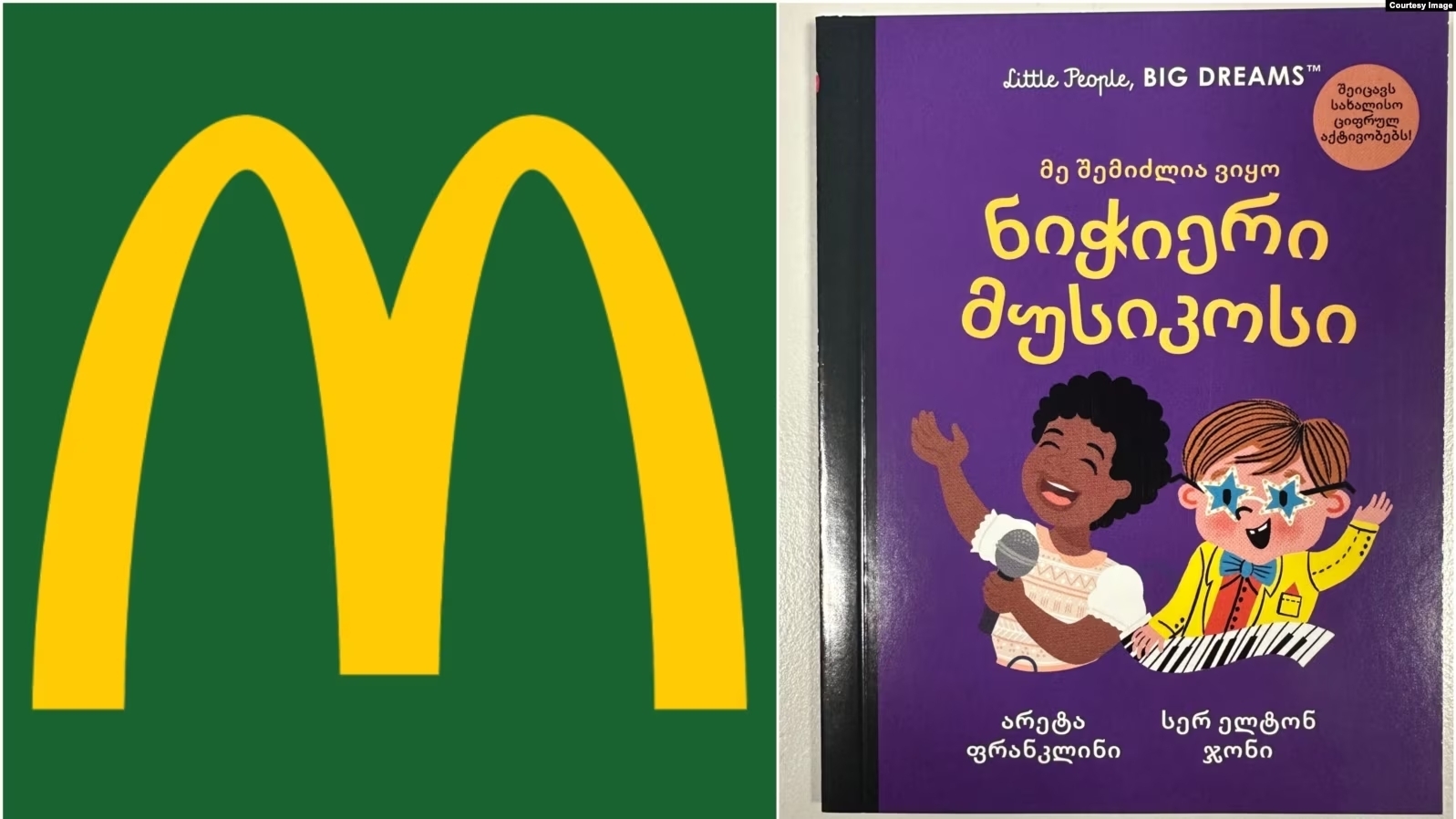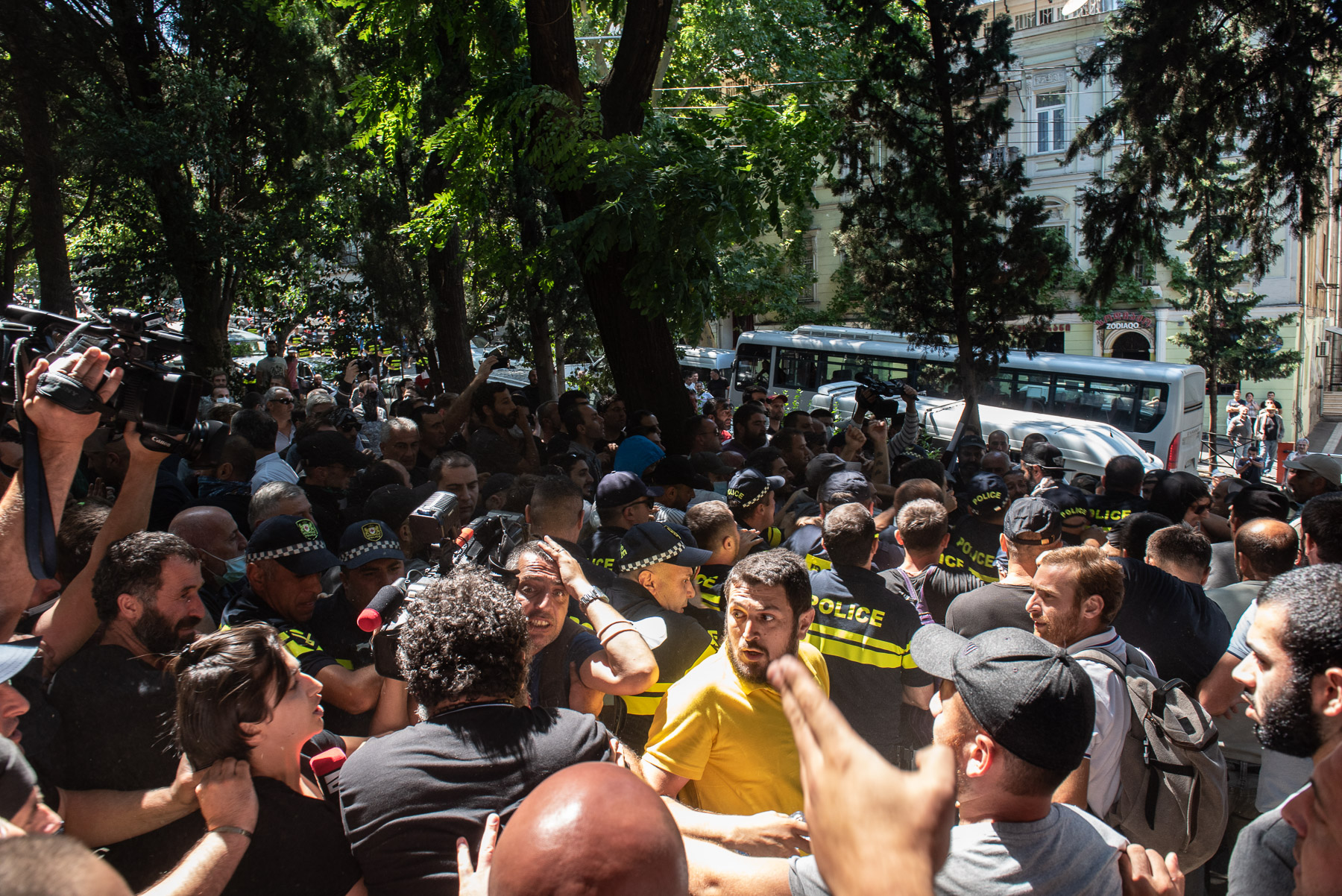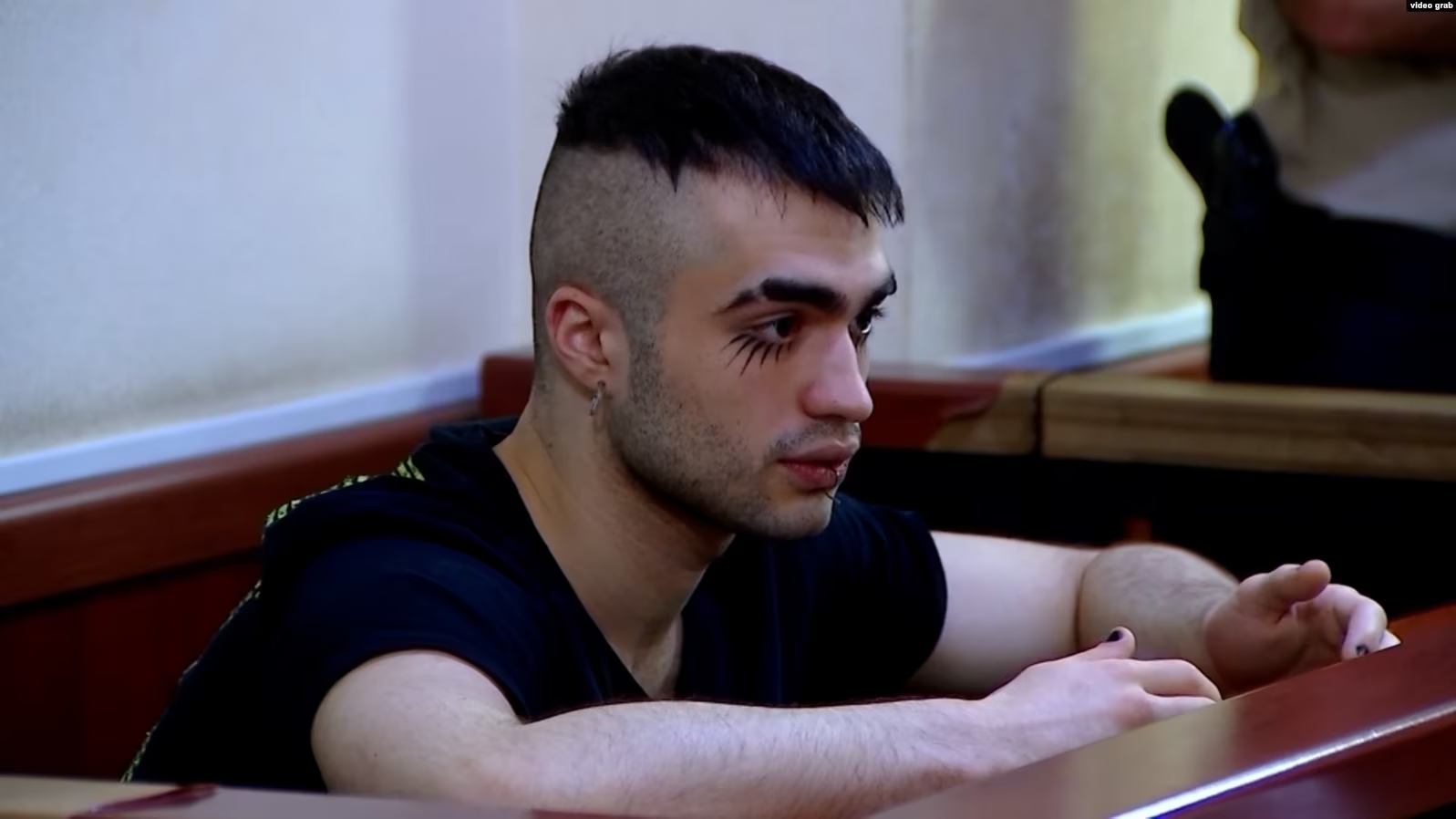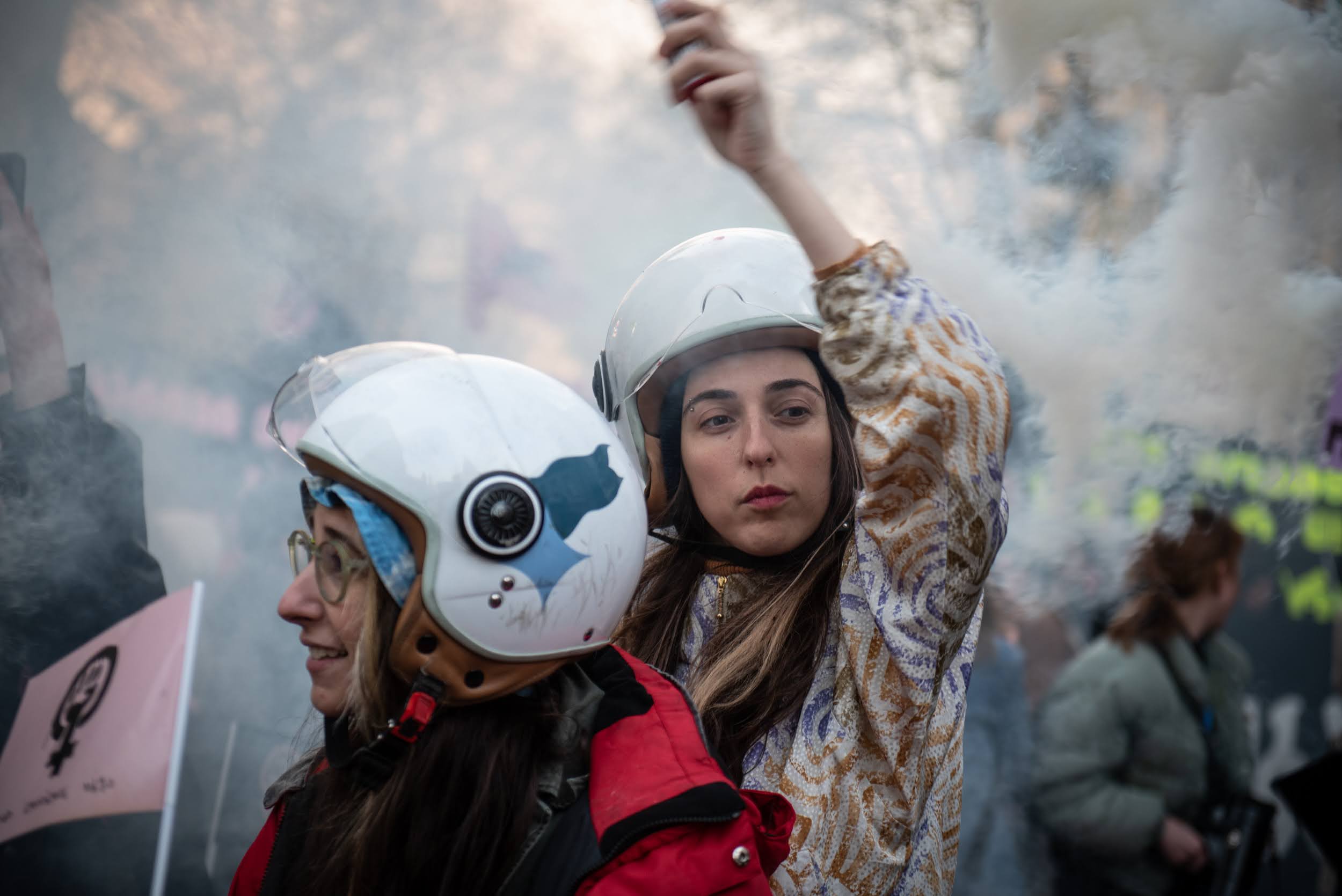

In recent months, senior figures in the ruling Georgian Dream party have increased and intensified their homophobic rhetoric, accusing a fast food restaurant of distributing ‘LGBT propaganda’, and suggesting that students need to enter heterosexual relationships and ‘reproduce’.
Georgia’s Prime Minister, ruling party chair, and parliamentary faction chair have all made pointed homophobic statements in recent months, warning against queer ‘propaganda’ and accusing young people of having ‘messed-up orientations’.
The number and frequency of these statements has increased since March, causing some activists to raise concerns that the government is intending to jeopardise Tbilisi Pride Week, which is set to take place in the first week of July. Others, however, believe that this is part of a broader pre-election strategy by the ruling party.
Since 12 June, other leading members of the party, including Tbilisi Mayor Kakha Kaladze, have added to the rhetoric following a report from pro-government TV channel Imedi claiming that McDonald’s had been targeting children with queer ‘propaganda’ in Georgia.
The report stated that the fast food chain had included booklets describing Elton John’s biography and mentioning his marriage to a man in their Happy Meals. The company responded by highlighting that this was one of a number of books telling the story of famous cultural and historical figures, and refusing to withdraw the books from circulation.

However, senior figures from the ruling party have used the incident as an opportunity to intensify their homophobic rhetoric, with the Prime Minister describing the leaflets as ‘disgusting’, and part of an ‘immoral and unacceptable campaign’.
The anti-government Shame Movement has expressed concern that the ruling party’s homophobia appears to be intensifying just over a week before Pride Week begins in the country; a regular source of tension between queer rights activists and the government.
A few weeks after the announcement of #TbilisiPrideWeek2023, Georgian PM Gharibashvili’s statement on France’s 22% LGBT youth is concerning.
This statement is dangerous, fueling aggression towards the LGBTQ+ community, endangering pride participants, and undermining democratic…
— Shame Movement (@Shamemovement) June 21, 2023
While last year’s events were provided with police protection against far-right protesters, the government at the last minute reneged on its promise to provide police protection for a planned march in 2021, leading to homophobic riots that injured protesters, tourists, and journalists.
Irakli Gharibashvili: Opposing ‘evil forces’
Georgia’s Prime Minister Irakli Gharibashvili has been one of the key proponents of this rhetoric, both within the country and internationally, making statements that have attracted the condemnation of local rights groups and Western partners.
Speaking at a Conservative Political Action Committee (CPAC) conference in Hungary in April, Gharibashvili repeatedly emphasised the importance of ‘preserving traditional values’ and the inadmissibility of ‘violence by the minority against the majority’.
A few days later, in his Independence Day speech, the prime minister claimed that ‘evil forces’ were trying to destroy traditional values and ‘make lies a reality’, while not specifying what those ‘forces’ were.
He added that ‘propaganda for false values’ was the greatest challenge that humanity currently faced.
Following the TV Imedi report on the McDonald’s publication, Gharibashvili claimed that the fast food chain was carrying out ‘propaganda’ aimed at children.
In the same speech, Gharibashvili referred to an Ipsos survey which found that 22% of the population in France identify as queer, which he termed ‘alarming’.
‘We do not interfere in anyone’s private life, that is absolutely unacceptable. But the fringe propaganda that spreads in kindergartens and schools abroad is absolutely unacceptable to me’, said the prime minister. ‘Thank God, this will not happen to us, we will protect it, we must oppose it because it is unacceptable to promote this topic in schools and kindergartens and among young people’.
After the 2021 homophobic riots in Tbilisi, during which activists and journalists were attacked and beaten by far-right protesters, the Prime Minister responded by stating that ‘when 95% of the population are against conducting a propagandist parade, we should obey this’.

However, a CRRC survey that year found that three-quarters of Georgians fully or partially agreed that the country’s constitution should grant freedom of expression regardless of racial, ethnic, religious, or sexual identity, with only around half of those surveyed expressing the opinion that the Pride March could have endangered Georgia.
Additionally, 91% of those surveyed believed that the use of violence against demonstrators was unacceptable under any circumstances.
Irakli Kobakhidze: ‘young people with disorientation’
The ruling party’s chair, Irakli Kobakhidze, has often taken the lead in establishing the party’s position on key issues, making anti-Western statements, leading the party’s advocacy for the foreign agent law, and, increasingly, making explicitly homophobic statements.
Shortly after the foreign agent draft laws were withdrawn from parliament, Kobakhidze stated that the law had done ‘important work’, noting that organisations had been publicly identified that were ‘involved in non-governmental activities’, amongst which he mentioned queer ‘propaganda’.
The day after the first foreign agent protester to face criminal charges was arrested on 29 March, Kobakhidze accused 21-year-old Lazare Grigoriadis of having ‘all his orientations messed up’.

Kobakhidze made similar statements on 10 June, after students at Tbilisi State University threw Russian rouble notes at him.
‘Their orientation is messed up in every way’, said the party chair. ‘I think that these people should be put on the right track, boys should get wives, girls should get married, reproduce, etc. All their orientations, starting from political ones, should be corrected.’
Kobakhidze also weighed in after the McDonald’s report was aired, stating that ‘LGBT propaganda amongst children is categorically unacceptable’.
Mamuka Mdinaradze: ‘separating rights from propaganda’
Mamuka Mdinaradze, the leader of Georgian Dream’s parliamentary faction, has also been a notably active proponent of statements about ‘LGBT propaganda’.
Speaking on 1 May, Mdinaradze claimed that a survey by American research firm Gallup had found that LGBT propaganda could ‘dramatically increase’ the number of ‘representatives of a certain group’.
The poll had in fact found that the number of US adults who identified as queer had doubled between 2012 and 2022, reaching 7% in 2022, but did not make any mention of ‘propaganda’. It also noted that the rate of self-identification was higher amongst younger people.
‘The separation of rights protection and propaganda is a very serious issue, and we should also separate LGBT propaganda and the protection of the rights of LGBT people’, said Mdinaradze.
He added that while ‘there should not be a person who can discriminate against another person’, the protection of minority rights should not be ‘mixed’ with propaganda ‘under any circumstances’.
However, when Pridon Injia, a member of the far-right and pro-government European Socialists party, announced his intention to table a bill to ban ‘LGBT propaganda’, Mdinaradze stated that the bill would not be supported by the ruling party.
He suggested that the bill would ‘suit LGBT propagandists and radical forces’, the latter a term used by the ruling party to refer to the political opposition, ‘who build their entire narrative around it’.
He suggested that instead, ‘unhealthy propaganda’ should be countered with ‘healthy propaganda, not legal mechanisms’.
On 11 June, Mdinaradze went on to appeal to several unnamed television stations, which he claimed were ‘listed as LGBT propagandists’. He advised them against entering a ‘war of values’, stating that they would lose.
‘Georgia has a healthy youth, with a healthy future, a national government, and we protect the healthy, talented, educated generation from LGBT propagandists and all harmful propaganda’, he stated.
[Read on OC Media: More young Georgians say queer rights are important than not, poll finds]
He repeated similar rhetoric regarding the protection of youth the following day, when discussing the McDonald’s pamphlets, which he termed ‘disgusting’.
‘Being indoctrinated with this propaganda from a young age is harmful’, said Mdinaradze. ‘No one in this country will ever be able to call propaganda the protection of rights.’
A pre-election strategy?
The number of these comments has intensified in the months running up to Tbilisi’s Pride Week, set to take place in the first week of July.
However, Mariam Kvaratskhelia, one of Tbilisi Pride’s co-directors, told OC Media that she saw the trend as part of of a broader electoral strategy and not solely connected to Pride Week.

‘We believe that the ruling party […] has chosen homophobic politics as a pre-election strategy to secure the votes of up to 15–20% [who are] radical conservatives in the upcoming 2024 elections’, said Kvaratskhelia. Georgia’s next parliamentary elections are set to take place in October 2024.
She added that the organisation believed the ruling party was using the issue to divert attention from real, difficult-to-solve problems, such as poverty, unemployment, judicial independence, and the country’s growing dependence on Russia.
‘[Georgian Dream] wants us to believe that they are protecting family values and traditions. The way to protect our families and traditions is to make sure that children are not starving, old people are not living in debt, [and] mothers are not immigrating and leaving their families behind, not by attacking LGBT citizens’, said Kvaratskhelia.
She added that the incitement of hatred against LGBT people was reminiscent of Russian politics under President Vladimir Putin.
‘[We know] how this story continued in Russia, first it was LGBT people and homophobia, then it was followed by attacks and repressions of other people’, said Kvaratskhelia.
‘On the other hand, it is important to recognise the resilience and strength of the LGBT community, as well as the support we receive from allies both within and outside of Georgia’, she added.






